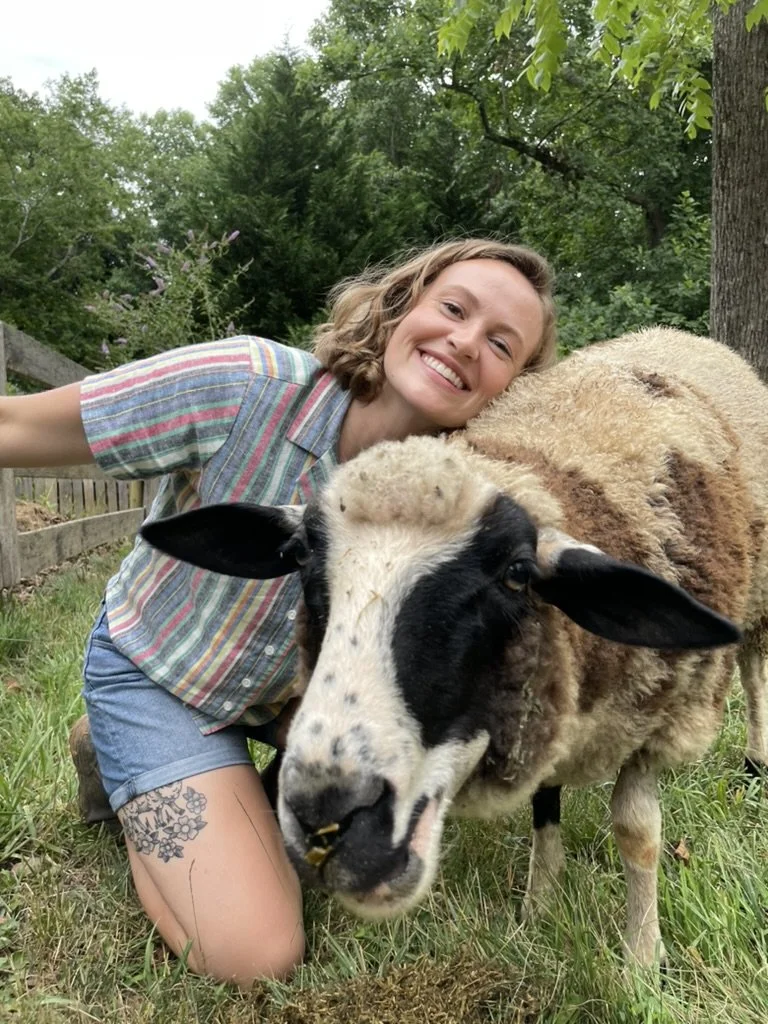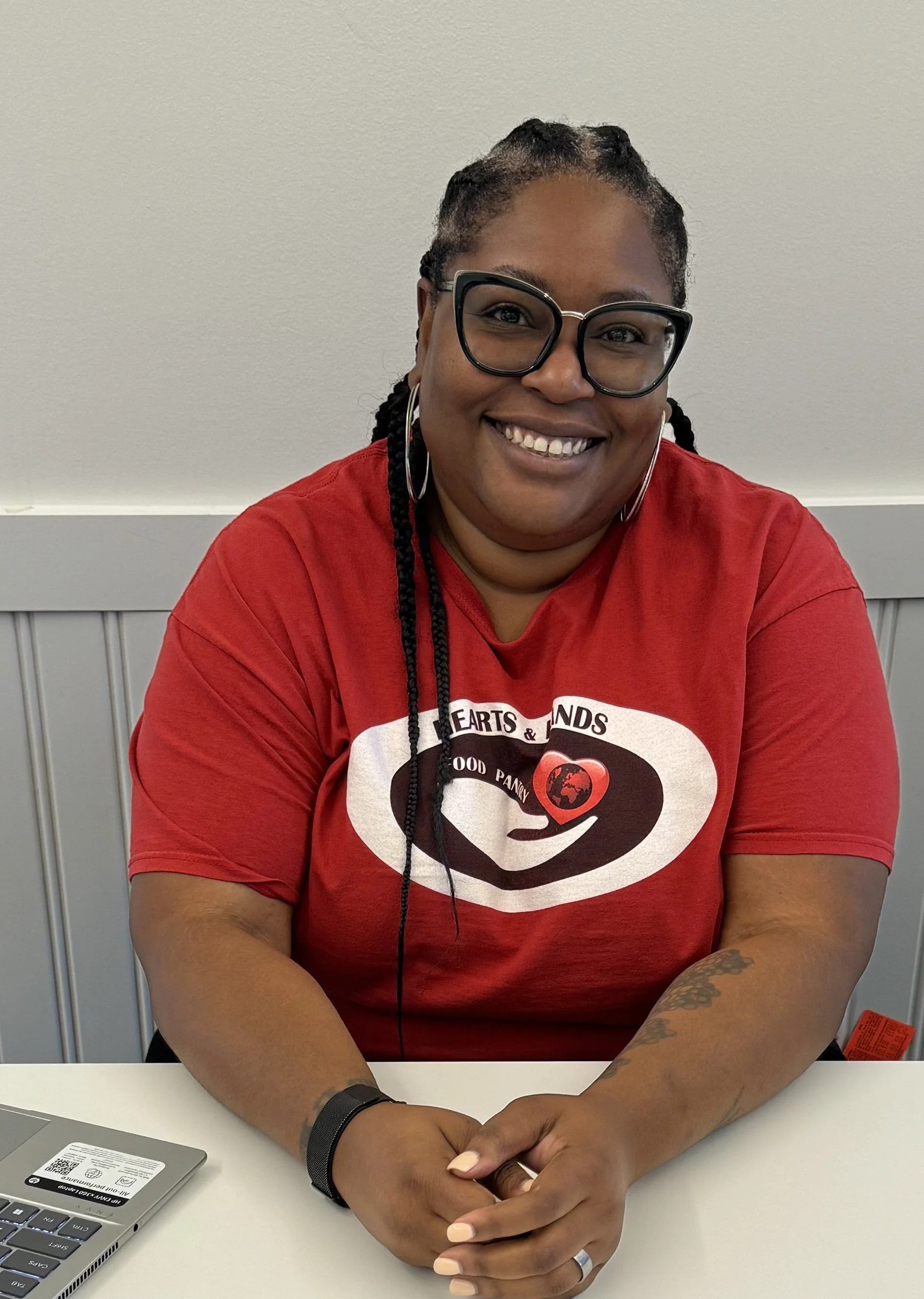
NC Local Food Council
Working Collaboratively Across the State to Support North Carolina’s Local Food Systems
Vision, Mission, and Relationships
OUR VISION
The NC Local Food Council envisions an equitable and resilient local food system that supports the health and well-being of all North Carolinians through economic vitality and diversity in our farms, fisheries, and markets, and accessible, culturally appropriate foods for all.
OUR MISSION
The NCLFC mission is to convene a network of state and regional food system leaders from cross-sector organizations using a collaborative systems approach to provide education, research and other resource-based tools to support healthy, diverse, equitable, and resilient local food systems.
Specifically, this council will facilitate:
Interaction between members to coordinate programs, guidance, and support for building NC local food systems
Communication, resources, guidance, and collaboration between local councils and the statewide council
Formal and informal education and research about best practices related to statewide food, agriculture, and fisheries issues
OUR RELATIONSHIP WITH LOCAL FOOD COUNCILS
The North Carolina Local Food Council collaborates with Community Food Strategies to mutually support local food councils across North Carolina. In their shared mission to support food councils, the NCLFC and Community Food Strategies have distinct roles.
North Carolina Local Food Council
The NCLFC creates and shares research-based resources that facilitate local food systems development at the community level - in local food councils - and at the state and regional levels - within agencies and institutions.
Community Food Strategies
Community Food Strategies works specifically to provide on-the-ground resources, communications, network facilitation, and general support for the network of local food coalitions across North Carolina.
Who We Are
Representing Organizations and Agencies Across North Carolina
Members of the NCLFC are statewide organizations and agencies that were appointed to the previously legislated Sustainable Local Foods Advisory Council or others approved for membership by existing NCLFC members. NCLFC council members meet monthly to connect, collaborate, and update. Below, you’ll find our current members and the organizations and agencies they represent.
-

Ali Stone
-

Alice Ammerman
-

Amanda Hege
-

Angel Cruz
-

Anette Hiatt
-

Ashley Thomas
-

Barry Nash
-

Brett Rapkin-Citrenbaum
-

Chad Martin
Triad Regional Representative
-

Dana Choquette
WNC Regional Representative
-

David McRae
-

Erica Calderon
-

Gideon Adams
-

Hannah Dankbar
-

Jennifer Bedrosian
-

John Morck
-

Jordyn Appel-Hughes
-

Juvencio Rocha-Peralta
-

Karen Stanley
-

Kelly Warnock
-

Kenya Joseph
-

Laurel Edwards
-

Makayla Johnson
-

Marianne Weant
-

Michelle Schroeder-Moreno
-

Morgan Malone
-

Nora Rodli
-

-

Salina Brown-Artis
-

Sara Runkel
Meet our Regional Representatives
Regional representatives are important members of the council, bringing the needs and goals of the local food councils across the state to NCLFC.

Our History
Summary
Since 2001, the North Carolina Local Food Council (NCLFC) has evolved from a government-established council to a locally-run organization. Currently, NCLFC serves as a collaborative network across various organizations, agencies, and groups whose statewide work supports vibrant farms, fisheries, healthy people, strong communities, thriving local economies, and resilient ecosystems through a common aim: NC’s local food systems.
The growing focus on local food acknowledges our state’s rich agricultural heritage, blended with new ideas, technology and passion. As more facets of culture and society focus on food, new stakeholders are emerging to influence our agricultural economies and food systems. Business and industry leaders, non-profits and philanthropists, universities, health care professionals, government, and private citizens are converging on the discussion about local food.
A vibrant local foods economy will help preserve our state’s agriculturally rich farmland, waterways, and rural countryside with the added benefit of preserving and protecting our water resources and water and soil quality. A strong local foods economy can sustain the economic viability of many of our farm and fishery operations, thus enhancing the quality of life for food producers and society as a whole.
2020 to Present
The North Carolina Local Food Council during the COVID-19 Pandemic
In March of 2020, the COVID-19 pandemic began to rage across the state. Switching to all remote work, the North Carolina Local Food Council (NCLFC) partnered with other organizations to develop a support system and set of working groups to respond to the pandemic and keep local food systems thriving. The NCLFC compiled resources, promoted locally grown and harvested products, built up the Visit NC Farms app, found ways for food banks and other programs to continue serving their communities safely, and helped local food producers to develop their online marketing presence. In October of 2020, the NCLFC established their Remote Internship to Support Enterprises (RISE) for Local Foods program, which connects college students to local foods organizations, providing support to the farms and fisheries that they work with. NCLFC continues to do the “boots-on-the-ground” work to support farmers and local food councils in this time of uncertainty.
2013
The North Carolina Local Food Council
The Council felt its work was unfinished and that there was still great benefit for the state in working together on food systems in a cross-sector way. As a result, even though it lost its legislative mandate, the members of the council decided to continue its work. Through strategic planning, the council changed its name, developed a revised mandate and accompanying goals, and established committees which will evolve over time as needs change. We are growing and have added new members to the council, have policies in place to guide future work and development, and our history informs our future. You can learn more about our guiding principles here and in this document.
2009
The North Carolina Sustainable Local Food Advisory Committee
The second statewide food council (the North Carolina Sustainable Local Food Advisory Committee) was established through legislation in 2009 and housed in the N.C. Department of Agriculture and Consumer Services. The bill came out of a statewide initiative, led by the Center for Environmental Farming Systems and its many partners, to develop a statewide strategic action plan for building N.C.’s food system. Many groups and individuals worked hard to make the legislated council a reality.
The council had representatives from several state agencies, organizations, businesses, and farmer and fisher groups, and individuals. It covered agriculture (production and business), food-related health issues, hunger, the environment, land preservation, and more. The list of council members appointed by the legislature, commissioner of agriculture, and governor can be found here. Most of these entities are still represented on the current council.
The legislated council had many wins which are summarized in this PowerPoint presentation. In addition, more details can be found in the annual reports of the council. Unfortunately, despite its success, the council was sunset in 2013 by a new legislature (along with many other boards and commissions).
2001
The First State Food Policy Council
In 2001, N.C. Agriculture Commissioner Meg Scott Phipps established the first State Food Policy Council for North Carolina. The council was part of a new national network of councils coordinated by Drake University’s Agriculture Law Center. The goals of this first council were to coordinate food policy, primarily in state agencies, promote the use of state products in N.C. institutions, and meet the needs of the state’s hungry. It was the first multi-sector effort focused on food at the agency level and included representatives from agriculture, private industry, hunger relief agencies, the legislature, and a number of state government agencies. While it only existed for two years, a key win was securing a state funding match for the WIC Farmers Market Nutrition Program.














